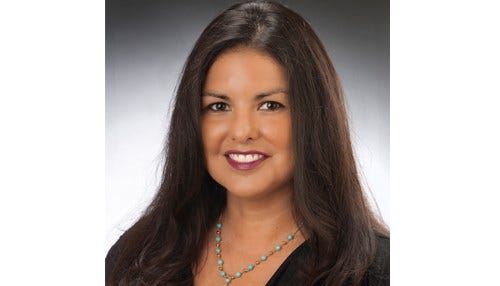SOLAS to Take Effect in Murky Waters

Subscriber Benefit
As a subscriber you can listen to articles at work, in the car, or while you work out. Subscribe NowEffective, July 1, cargo containers filled with goods from Hoosier businesses could be rejected for shipment at ports if they do not have a Verified Gross Mass thanks to a new international regulation from the International Maritime Organization. The SOLAS requirement, although months away from being imposed, is a hot topic in the freight forwarding industry as companies prepare for this change without clarity on the new process.
During the IMO’s session in May 2014, changes were made to the mandatory container weight verification. The SOLAS mandate requires that shippers give carriers the VGM (weight) of each onboarding container using one of two methods: by weighing the container after it is loaded and sealed or weighing each individual package and cargo item and adding the tare weight of the container to the sum of the single masses. These are known as Method 1 and Method 2 and neither are necessarily the means that container weights are derived today. There are no current industry standards/regulations on declared weight for containers traveling by ocean.
Company leaders who import/export internationally need to be aware that the SOLAS mandate is international law under the IMO encompassing the 162 countries that are signatories to the SOLAS Convention.
Consider the impact at port operations: globally, approximately 300,000 container weights will need to be verified daily at ports with approximately 50% of the sailing orders/booking requests still processed as paper transactions rather than electronically. A report out this week from the banking investment firm Cowen & Co estimates the added cost per container to be $150 to $200.
While the international business community understands the need for global safety requirements, part of the confusion arises when it comes to oversight. During an industry conference in early March in Long Beach, CA, the U.S. Cost Guard Rear Adm. Paul Thomas said the rule itself is not mandatory "under any U.S. regulation." He went on to say that as far as the Coast Guard was concerned, complying with the VGM rule is a "business procedure issue." He added SOLAS places "no legal obligation on the shipper. It places legal obligation only on the vessel subject to SOLAS."
His remarks were made during a panel discussion that included Christopher Koch, a senior advisor and former CEO of the World Shipping Council. Koch called the comments a “stunning revelation,” considering the IMO guidelines were submitted by a working group shared by the U.S. Coast Guard.
Then, mid-March, the U.S. Coast Guard shrugged off suggestions that the rollout of the new regulation is mired in confusion and concern. Adm. Paul Zukunft, Coast Guard command told a House Subcommittee, “I am not seeing the sky falling.” He said most carriers already are in compliance with the mandate as long as the container weight appears on their shipping manifest.
In response, a group of 49 shippers associations and supply chain stakeholders, led by the Agriculture Transportation Coalition, are calling on the Coast Guard to leave the existing processes for weight unchanged.
Meanwhile in early April, the Port of Los Angeles/Long Beach terminal association said due to lack of terminal infrastructure their 13 terminals are incapable of providing VGM to adhere to the SOLAS guidelines. The terminals said individual member terminals would establish and communicate their own policies. They are suggesting shippers obtain VGM prior to the containers arrival at their terminals. Virginia Port Authority said it will comply with the SOLAS container weight rule, but it won’t accept containers without the VGM declaration, in order to do so. The port will not offer container weight services. Internationally port authorities have yet to weigh in on this topic.
Where does this leave those of us in the freight forwarding industry and our clients?
Until the dust settles and uniform guidelines are published some best practices are:
Provide accurate weight of shipment and container.
Provide this weight before in-gate of container.
Create in-house “best practices” in order to have consistent process in place.
Importers need to speak candidly to their shippers regarding the expectation of an accurate VGM for every shipment.
Here are some things to consider after July 1, 2016.
The shipper is legally responsible.
Rules and enforcement are likely to vary widely among countries, ocean carrier and marine terminals.
The potential for delays is real, but by no means expected across the board.
Frustration has been the key term when any entity has described the rollout of the Container Weight Mandate. We’re sailing in murky waters and need to be sure we have clarity by July 1 to ensure compliance.
Susan Trautman is a business development professional working for Cargo Services Inc., an independently owned and operated Indianapolis-based company providing freight forwarding services for companies throughout the Midwest.
